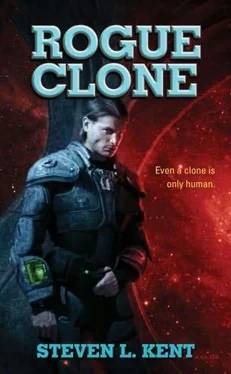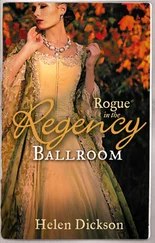Steven Kent - Rogue Clone
Здесь есть возможность читать онлайн «Steven Kent - Rogue Clone» весь текст электронной книги совершенно бесплатно (целиком полную версию без сокращений). В некоторых случаях можно слушать аудио, скачать через торрент в формате fb2 и присутствует краткое содержание. Жанр: Боевая фантастика, на английском языке. Описание произведения, (предисловие) а так же отзывы посетителей доступны на портале библиотеки ЛибКат.
- Название:Rogue Clone
- Автор:
- Жанр:
- Год:неизвестен
- ISBN:нет данных
- Рейтинг книги:3 / 5. Голосов: 1
-
Избранное:Добавить в избранное
- Отзывы:
-
Ваша оценка:
- 60
- 1
- 2
- 3
- 4
- 5
Rogue Clone: краткое содержание, описание и аннотация
Предлагаем к чтению аннотацию, описание, краткое содержание или предисловие (зависит от того, что написал сам автор книги «Rogue Clone»). Если вы не нашли необходимую информацию о книге — напишите в комментариях, мы постараемся отыскать её.
Rogue Clone — читать онлайн бесплатно полную книгу (весь текст) целиком
Ниже представлен текст книги, разбитый по страницам. Система сохранения места последней прочитанной страницы, позволяет с удобством читать онлайн бесплатно книгу «Rogue Clone», без необходимости каждый раз заново искать на чём Вы остановились. Поставьте закладку, и сможете в любой момент перейти на страницу, на которой закончили чтение.
Интервал:
Закладка:
We passed Wheeler Air Force base. It was dark and abandoned. We did not stop. A few miles farther, we approached another military complex called Schofield Barracks, a defunct Army base.
Schofield Barracks looked a lot like Wheeler and the defunct Naval base at Pearl Harbor, just an empty campus with sturdy two- and three-story buildings. From the road it looked a good deal larger than Wheeler but not even half the size of the Pearl Harbor facility. There were no immediate signs of life, but there was one difference at Schofield Barracks—the main gate was wide open. A length of chain link fence blocked the main gate of Wheeler and some of the gates around Pearl Harbor were bricked shut.
“You think they’re expecting us?” I asked.
“Looks that way,” Freeman said.
We originally planned to drive by the base a few times before going in. I did not know about Freeman, but I felt a strong desire to avoid stumbling into a hive filled with Adam Boyd clones.
Seeing the gates left open did not deter Ray Freeman. He was not the type of man who looked for trouble, but he did not back down from it. He turned into the entryway.
Finding our way across the base was easy enough. Most of the roads were overgrown with weeds, but one artery was trimmed and neat. The sidewalks in this part of the base gleamed in the sunlight and the asphalt on the streets was not cracked. We passed a courtyard in which the weeds had only started to grow wild. The grass was knee-high and the trees wanted trimming. We found a parking lot in which the stalls were clearly painted, and Freeman parked.
“We’re supposed to go there,” Freeman said, pointing straight ahead. The building was three stories tall. Its architecture was a cross between twentieth century American military and sixteenth century Spanish, combining rounded arches and thick stucco walls. The sun was behind this building and its verandas were buried in shadow. Had there been lights on in the building, we would have seen them. The lights were off but the front doors of the building hung wide open.
“An open invitation,” I said, embarrassed by my own flat humor. Strangely enough, Freeman cracked a small smile at that lame joke. Freeman was a bright and dangerous man with absolutely no sense of humor. Perhaps jokes had to be obvious for him to appreciate them.
I had no gun, but Freeman had his pistol. He carried it in the open now, holding it in his right arm which hung almost limp at his side. He seemed so relaxed.
We walked straight toward the building and right in the door. Leaving the sunshine and entering this shadowy realm was like falling into a deep cave. Even after Freeman found a light switch and turned on the lights, the darkness in this building seemed almost palpable.
Most of the furniture had been removed from this hallway. There were no chairs. A large reception desk wrapped around one doorway. Bulletin boards lined one of the walls. One of these bulletin boards was covered with rows of eight by ten photographs, and the light from the windows reflected on their glossy finish. Beside the bulletin board sat a communications console.
We approached. Five rows of five photographs—twenty-five pictures in all—stretched across the bulletin board. Each of them was a picture of me. There were pictures of me entering Klyber’s C-64 transport right after the evacuation team brought it back into the hangar at the Dry Docks. There was a picture of me climbing out of my Starliner in Honolulu. There was one picture of me in the International Marketplace and two of me and Freeman outside of Sad Sam’s Palace—one of us entering and one of us leaving.
The last row of pictures had been taken this very morning. One showed me pissing outside the car. Another showed me taking a big bite out of my breakfast sandwich. The most recent photograph showed me opening the gate to the barracks. The picture was no more than five minutes old. Whoever placed these pictures had time to print this last photo and escape unnoticed between the time that I opened the gate and the moment we walked in the door. I had been under surveillance and never even knew it.
“I think they are sending you a message,” Freeman said.
The message was obvious. The photographer could just as easily have used a rifle with a sniper scope as a camera with a telephoto lens. I reached over and switched on the communications console. Che Huang’s face appeared on the screen.
“Are you always this slow, Lieutenant?” he asked.
“Hello, Huang,” I said. I was supposed to salute him at this point. Instead, I folded my arms and stared into the screen. “What do you want?”
I tried to sound calm, but my heart was pounding so hard I could hear it pulsing. Liberators were known for their primal instincts. Though I was still in control, I could feel the rage building inside me.
“I did not kill Klyber,” Huang said in a matter-of-fact tone.
“Not by yourself,” I said. “You had one of your SEAL clones do it for you. I have the video feed from the Dry Docks security. You had a clone on the maintenance team that cleaned Klyber’s transport.”
“I did send a SEAL to visit Klyber’s transport,” Huang admitted. “He installed listening and video devices throughout the ship.”
“I didn’t hear anything about bugs on the transport,“ I said.
“Golan security didn’t look for surveillance equipment. Why don’t you have your friends back at the Dry Docks sweep the main cabin and the late admiral’s room for bugs?”
I did not respond.
“Think about it Harris, why would I kill Klyber?” Huang asked.
“Let’s see …petty jealousy, old rivalries, just for the fun of it, to take control of the Doctrinaire …”
“I already had control of the Doctrinaire ,” Huang said. “I took it away from Klyber during the summit.”
“I saw the summit. You didn’t have anything,” I said.
“You have been busy,” Huang said. “Perhaps you weren’t watching the feed closely. By the time the summit ended, I had command of the Doctrinaire and Klyber had nothing but the fleet.”
“Commanding the fleet isn’t being in control?” I asked.
“Once the battle begins, the ship’s captain makes the decisions. When historians discuss great battles, they won’t bother mentioning the fleet. Klyber knew it. I suppose you saw the old fool sulking once I got my suggestion past Smith and the rest of them. He did not say a word for the rest of the meeting. He just sat there, stewing. I got everything I wanted.
“History will remember me as the secretary of Navy who won the war. I’ll place Robert Thurston over the ship. He’ll be the commander who won the key battle. And Klyber …Klyber would have been a footnote. He would have been the man who brought up the rear.
“Harris, if you don’t believe anything else I tell you, believe this—I got what I wanted.”
Huang generally seemed on the verge of a tirade. Not this time. Now he explained himself with gloating patience. I thought about what he said. When the meeting ended, I met Klyber at the door. He looked tired and old and withdrawn. He talked about the members of the Joint Chiefs being too young to understand war, and he said that the fight would not be as easy as they thought.
“Why come to me?” I asked.
“I want your help,” Huang said.
“Help you?” I laughed. “Why should I help you?” Across the hall, Ray Freeman stood as still as a statue, watching Huang. His face showed no emotion. His eyes never left the screen.
“We both want the same thing, Harris. We want to kill the people who killed Klyber. Now that I have the Doctrinaire, I won’t be safe until they are dead.
“You can clear my name while you’re at it. You are not the only one who thinks I sabotaged Klyber’s transport. Once Smith and the other Joint Chiefs see the video feed with that SEAL entering the ship….” He shook his head.
Читать дальшеИнтервал:
Закладка:
Похожие книги на «Rogue Clone»
Представляем Вашему вниманию похожие книги на «Rogue Clone» списком для выбора. Мы отобрали схожую по названию и смыслу литературу в надежде предоставить читателям больше вариантов отыскать новые, интересные, ещё непрочитанные произведения.
Обсуждение, отзывы о книге «Rogue Clone» и просто собственные мнения читателей. Оставьте ваши комментарии, напишите, что Вы думаете о произведении, его смысле или главных героях. Укажите что конкретно понравилось, а что нет, и почему Вы так считаете.












